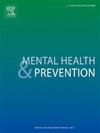Impact of rajyoga meditation on stress and psychological well being during COVID-19 in India: A randomized control trial
IF 2.4
Q2 Medicine
引用次数: 0
Abstract
Background
The mental health of healthcare workers suffered greatly during the COVID- 19 pandemic. Globally, various preventive and therapeutic strategies were explored. Rajyoga, one of the oldest yogic systems practiced in India for millennia, is accessible to all irrespective of place or time, making it a viable option for promotion of mental wellbeing.
Objectives
To assess the feasibility, acceptability, and effectiveness of Rajyoga meditation among healthcare professionals working in hospital settings during the COVID-19 pandemic.
Methods
A single-blinded, randomized interventional study was conducted from April 2021 to January 2022. A total of 240 healthcare professionals were recruited through snowball sampling using online Google Forms. Participants were assigned either to a control group receiving online relaxation music or an intervention group practicing Rajyoga meditation online. Pre- and post-intervention anxiety, stress, and well-being were assessed using validated tools: Generalized Anxiety Scale, Corona Anxiety Scale, Perceived Stress Scale, and WHO Well-being Index.
Findings
High levels of psychological distress were reported: 45.8 % had moderate to severe anxiety, 20.4 % had dysfunctional anxiety related to COVID-19, 6.7 % experienced elevated stress, and 68.7 % reported poor well-being. Rajyoga meditation led to significant reductions in anxiety and stress and improvements in well-being. Its effects were comparable to music therapy in relieving COVID-related psychological symptoms.
Novelty
The study is distinctive in focusing on healthcare workers and assessing a cost- effective, accessible intervention. Its online format enhances feasibility and adherence to social distancing norms, making it suitable during public health crises.
印度COVID-19期间拉贾瑜伽冥想对压力和心理健康的影响:一项随机对照试验
在2019冠状病毒病大流行期间,医护人员的心理健康受到严重影响。在全球范围内,探索了各种预防和治疗策略。拉贾瑜伽是印度最古老的瑜伽体系之一,已有上千年的历史。无论何时何地,所有人都可以练习拉贾瑜伽,这使它成为促进心理健康的可行选择。目的评估2019冠状病毒病大流行期间在医院工作的医护人员进行拉脉瑜伽冥想的可行性、可接受性和有效性。方法于2021年4月至2022年1月进行单盲、随机介入研究。通过使用在线谷歌表格进行滚雪球抽样,共招募了240名医疗保健专业人员。参与者被分配到接受在线放松音乐的对照组或在线练习拉吉瑜伽冥想的干预组。使用经过验证的工具评估干预前和干预后的焦虑、压力和幸福感:广义焦虑量表、冠状焦虑量表、感知压力量表和世卫组织幸福指数。据报道,心理困扰程度很高:45.8%患有中度至重度焦虑,20.4%患有与COVID-19相关的功能失调焦虑,6.7%的人压力升高,68.7%的人幸福感不佳。拉杰瑜伽冥想可以显著减少焦虑和压力,改善幸福感。在缓解与新冠病毒相关的心理症状方面,其效果与音乐疗法相当。新颖性:该研究的独特之处在于关注卫生保健工作者,并评估一种成本效益高、可获得的干预措施。其在线形式提高了社交距离规范的可行性和遵守性,使其适用于公共卫生危机期间。
本文章由计算机程序翻译,如有差异,请以英文原文为准。
求助全文
约1分钟内获得全文
求助全文
来源期刊

Mental Health and Prevention
Medicine-Psychiatry and Mental Health
CiteScore
2.10
自引率
0.00%
发文量
22
审稿时长
24 days
 求助内容:
求助内容: 应助结果提醒方式:
应助结果提醒方式:


